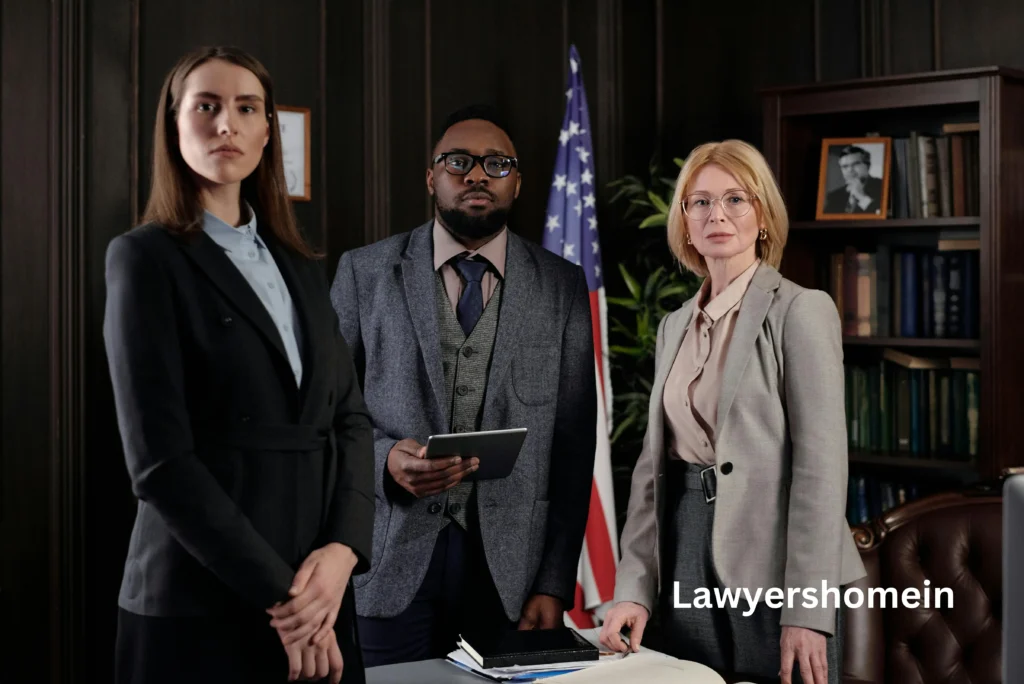Institute of Military lawyer
Military Lawyer refers to a separate or as of none of the military person that defines the performance of the troops on duty. It implies certain set of regulations which are different from civilian legislation, termed the Uniform Code of Military Justice (UCMJ) is the priory. Such area of law centralizes various aspects of military life, including conduct norms, discipline and personnel management within the army. Military Lawyers must have vast knowledge of both combat law as well as civil laws to be able to properly defend military personnel dispute thereby arising. They play a primordial role in the achievement that military justice of being applied correctly and right there where the legal principles are supposed to be explained.
Regulations of Military Justice
The UCMJ is the foundation and the basis of military practice in legal profession since it describes the normative framework for dealing with the discipline and order in the army. It involves those crimes that are not only receivable by the military but also the criminal behavior such as desertion, insubordination and marital disloyalty, among others. There are also common crimes like theft and assault. Indeed, the content of lawyers in this legal area offers aid in complex UCMJ cases and provides competent legal counseling and defense to any service person. Military Lawyers make sure rules of way are not violated and, if required, proper investigations and court-martial are followed up. The fact that knowledge of the UCMJ is a must for the Naidu of the military members and the credibility of the military justice system is a requirement.
Courts-Martial Proceedings
Military courts known as courts martial are courts that represent military personnel accused of the breach of honor codes. Such proceedings may be of summary courts-martial, which is usually for minor offense cases and general courts-martial for serious crime cases. The legal pros are on the frontlines of these tribunals; military Lawyer would appear for the prosecutors or the culprits. Unlike the other parties that present evidence, examine the witnesses and make legal argument of neutral and unbiased during the hearing, the judges are the only ones that have that responsibility during the course of trial. The procedural rules and evidentiary standards that are peculiar to the military courts should have a prior knowledge. The management of courts-martials requires not only special knowledge but also skills that are tailor-made for the complete merits of all parties in the case.
Administrative Actions
The administrative processes of the military include various procedures that do not have to be legally justified but are to deal with misbehavior or poor performance. These steps might constitute an oral warning, demotion, separation or firing. Lawyers help commanders in making the necessary decisions that are resolvable through administrative means and represent military members in this process. Military Lawyer carries out the authorization to ensure that the law was executed correctly and protected the citizens’ rights. Administrative action bypasses courts-martial and proves the fastest way to address issues with the maintenance of good order on the military some occasions. These military behaviors bring out the key aspects of the military practice into play.
Legal Assistance for Service Members
Frequently service people seek legal help from lawyers because these issues involve different fields such as family law, estate planning, or consumer rights. During the process of divorce, child custody wills, or estate, and property valuation, the priests and attorneys render essential assistance to a service individual. This will consequently be a positive thing because it will allow them to carry out their duties without fear of the unresolved legal problems. Ensuring complete military Lawyer also assures the well-being of the health and competence of soldiers. This is an expression of the hospitality of the military to its own members and their families to a great extent.

Operational Law
The field of operational law deals with the application of legal factors at the institutional level in pre-conflict or battle situations. This area regulates the rules of armed conflict, engagement guidelines, as well as the treatment of detainees. The military Lawyers in the armed forces ensure all operations have legal basis which safeguards against legal consequences. Each time, the commanders instruct how to choose the objectives, provide clear rules and instructions on military operations and civilians’ protection. Ethical conduct of the military operations should be preserved and legal standards of international humanitarian law should be satisfied. And because of this knowledge of operational law is a must.
International Law and UN peacekeeping operations that lean on intervention.
Majority of the time when military force is used, legal rules under international law which defines relations between the states are in operation. It includes agreements between states, organization of international cooperation, and other general rules that are known as a customary international law. Military Lawyer oversees the enactment of those laws in order to make sure that national legislations coincide with their international commitments. Nonetheless, will focus majorly on cases like Status of Forces Agreements (SOFAs), status of prisoners of war, and question of lawfulness of operations in foreign states. While national law, for sure, is critical for not only functional engagement with other states or army violations but also to avoid any legal obstacle. Extensive military training is carried out to make soldier’s actions meet existing international law boundaries. Thus, military affairs are done according to legal systems, ethics and moral expectations.
Military Justice Reforms
The line between military justice and the changes needed to provide justice continues to move, allowing the military lawyer as best it can. This rule-making process involves fairness, transparency and efficiency. Law practitioners do not hesitate in spreading their work to be of assistance in the reforms that involve regulations, judicial vice and a subordinate’s rights among others. While Room 2 is for policy matters relating to rape, bribery and authority among the court-martial judges, Room 2 is for policy matters concerning these issues. Practicing adapting becomes their central objective and it can equally become their platform of advancing the concept of fair justice to all their clients.
Ethical crises and professionalism decision-making also overwhelm the concept of many nurses’ humanity and fairness.
In doing this, the Military Lawyer will not stop an inch by the application of these highest ethical and professional standards; otherwise it will practically be unacceptable. The main priority of our course of action is to make a of two worlds: to satisfy the customers’ needs on the one hand, and guarantee the fair deal on the other hand. This one, then, is concerned mainly with the issues of privacy, freedom of choice, and cultural relativism. Whilst on the one hand they should not necessarily place one function over the other but instead to achieve a balance between their roles as workers of military staff and for advisers the law that would not generate their conflict and mission failure and on the other hand. The spectrum of adjusting such charters can’t be underestimated. They will be the fundamental point the respect to the military justice system and impartial process.

Advocacy and Representation
Legal advocacy in military setting is a crucial part of the process that one has to adhere to while a part of the military. The military lawyers perform broader legal advocacy for their service-members who are not subjected to only court-martial resolutions while also representing them in all legal and non-legal forums that range from military tribunal services to civilian courts. Of course, along with these skills attorneys need to become experts in law, written legal documents, and oral deliberations. This representation denotes the guarding of the accuse commonly by the notion of justice, assailing to the victims and keeping in touch with the justice system. Successful advocacy both nurtures the abstract rights for the involved parties and ensures the substantiality of the military justice system at large. The things lawyers and other official personnel do and perform to make sure that justice is upheld would depend on how they do their job in a straightforward manner for military men to get a fair treatment.
Conclusion about Military lawyer
The legal practice of the military, which contains both the military and civilian laws, is known as Military Law. It necessitates a deep understanding of both the laws. Providing the members’ council of the army with legal attorneys is a good trial practice used over the years in military law to promote the principle of justice, objectivity and transparency. The application of the Uniform Code of Military Justice (UCMJ)And defense lawyers in court-martials and various disciplinary actions allotted to soldiers was the most important factor in maintaining discipline and enabling all members of the Army to enjoy the same rights.The principal task of these legal personnel’s is to make their way through UCMJ intricate and deliberate procedures in process and substance. The legal process known as Military justice system deals with offenses against the discipline of soldiers and offenses against other parties which include the civilians.
If lawyers are to become the advisors and defenders of service members, obtaining significant knowledge in application of the relevant rules will become a must-have. Such expertise will help law specialists to provide fair judgments as required by law.While beyond the scope of these issues being military-related, the lawyers are a support these service members need when undergoing problems in their private lives like family law problems, estate planning or consumer rights. On the other hand, the influence of this assistance is not undervalued, as it does not only help service members to settle unresolved legal problems but also helps them to have a peace of mind and therefore to work effectively for the owner of their well-being or for the crucial operational capabilities.
On top of that, lawyers who work as legal advisers to the commander are of great importance to making appropriate decisions on operational law and international law matters. The laws of armed conflict establish the guideline which sanctions how military conduct is carried out aiding in the reduction of potential repercussions, and simultaneously reinforce the moral conduct, both at time of war as well as during peace. Their skills in these areas would surely act as the basis for the military to function within the legally prescribed territory, and thus human rights and justice would be upheld.Punctuated with numerous amendments over the years, the military justice system develops to increase the fairness, transparency level, and overall efficiency. Legal counselors lead the charge here, pushing for adjustments that would more effectively safeguard the constitution guaranteed freedoms in the armed forces throughout the transition and prevent any may be manipulations with the military law. While they are observing the highest ethical and professional codes performing this dual role of military and legal consultants, they can effectively solve various legal issues.
However, in conclusion I want to point out those military lawyers just irreplaceable in the system. Their skill allows ensuring the impartial enforcement of law, safeguarding soldiers’ rights, and guarding military proceedings from failures. In many conflicts, the demands on service members as well as the evolving legal framework will continue to be highly encompassing. Hence, the necessity of capable and skilled legal people in this area of endeavor will remain essential.

